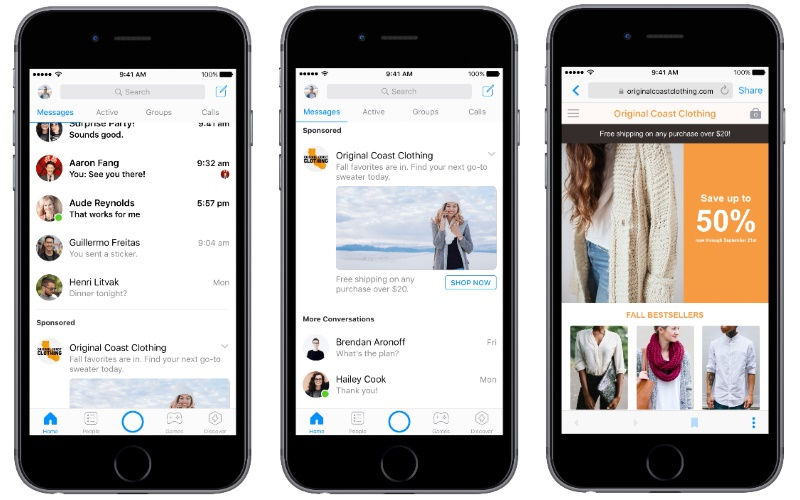Facebook has announced Messenger ads will begin popping up on home screens of users globally, while also urging businesses take advantage of it.
The social network giant revealed this in an online post on Tuesday saying, “Today we’re pleased to announce the global beta expansion of Messenger ads. People already spend time on Messenger interacting and conducting commerce with businesses and brands they love, and now with Messenger ads, they have an opportunity to discover experiences directly on their home tab”.
Facebook enticed businesses to take advantage of a new tool for creating ads for Messenger, which it said is used by more than 1.2 billion people monthly.
“Messenger is dedicated to building new and creative ways to help businesses and developers connect with the more than 1.2 billion people around the world who use the platform every month,” the post further stated.

Facebook says “for developers, having a variety of ways to surface the conversational, visual and social experiences they’ve built for businesses and people is crucial,” and that “Messenger ads offer developers and businesses a way to use Facebook targeting to extend their reach to people around the world”.
The Facebook suite of ad products in Messenger now include:
- Messenger ads – found in the home tab of Messenger. When people tap on an ad, they will be sent to the destination chosen during ads creation. This can be your website or a Messenger conversation.
- Click to Messenger ads – takes full advantage of the personalized nature of messaging by driving people to a conversation after they interact with the ad in Facebook, Instagram or Messenger.
- Sponsored messages – allows businesses to re-engage with people who have started a conversation with them.
“Starting today, some advertisers will begin to see Messenger ads as part of automatic placements within Power Editor and Ads Manager.
“Advertisers will be able to add Messenger to campaigns using the Traffic and Conversion objectives and leverage existing targeting options,” Facebook stated.
The social media firm said a small percentage of people will begin to see ads in their Messenger Home tab towards the end of this month.
If you’re working with a brand or business, Facebook says, if you are interested in learning more, further information and creative options can be found here.







